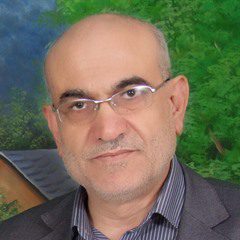During the 24-hour period between last Saturday and Sunday alone, there was a number of explosions in various places: Aden, Istanbul, Somalia, Cairo and Nigeria. This resulted in hundreds of people being killed and even more wounded.
Putting aside the conspiracy theories suggested as explanations, or those claiming responsibility for them, I am certain that all of these bombings can be labelled as being part of the general chaos across the region and, indeed, the rest of the world.
The so-called jihadist phenomenon was declining prior to 2010. Daesh, which is still part of Al-Qaeda, is being pursued and has lost areas which were under its control. This comes after it lost some popular support due to the Sunni Arabs choosing political participation instead. Meanwhile, other organisations of the same nature were witnessing similar declines, pushing some, such as those in Libya and Egypt, to make arrangements with their governments. The Al-Qaeda branch in Yemen was on the verge of doing just that, as Osama Bin Laden had asked for a deal with the government.
In Iraq, the then Prime Minister Nouri Al-Maliki, with encouragement from Iran, responded to the Sunni Arabs with more sectarianism and exclusion, despite their implicit acknowledgement of the Shia government. When the Arab Spring broke out, the Sunnis breathed a sense of hope, and engaged in peaceful political activity. This was responded to with state violence, and thus Daesh regained its popular support. We all know what happened in Tunisia, Egypt, Yemen, Libya and then Syria.
While the Tunisian and Egyptian experiences progressed with some losses, and Yemen leaned towards a settlement that seemed relatively acceptable, the Libyans entered a phase of deadlock after the fall of the Gaddafi regime, as did Syria following the regime’s bloody response to the people’s peaceful pro-democracy demonstrations. Once again, Iran encouraged an Arab government to respond in such a way, and the catastrophe has continued with Iran’s support for the Houthi coup against the legitimate post-revolution government in Yemen, with the help of the ousted dictator Ali Abdullah Saleh.
What many do not realise is that political and social phenomena breathe the same air, and when any trend rises in a country, it will rise soon after in the surrounding area, and vice versa. When the left-wing or nationalist politics arose, for example, they reached even the most conservative of countries; this also applied to the Muslim Brotherhood, as well as the various Salafist movements.
Given Daesh’s regaining of its strength in Iraq, its control of large areas, its spread to Syria and the declaration of the so-called Islamic State in Iraq and the Levant, the pledges of allegiance came rolling in and its branches flourished, including one in Libya. If a finger of blame is to be pointed, then Iran must take its share for turning normally tolerant Sunnis who embrace everyone and anyone into a faction looking for someone to defend them. Daesh was that someone which appeared to restore the caliphate.
If we look at the Kurdish PKK and the terrorist group’s activity in Turkey, we will find Iran’s fingerprints. Tehran has also provided the environment to burn Turkey over the border in Syria.
It seems inescapable, therefore, to do anything other than lay the blame at Iran’s door for the latest wave of violence to hit the region. It is reaping some of what it has sown in terms of consequences, with a significant depletion of its funds and, to a lesser extent, human losses, mainly but not exclusively from among the Arab Shia.
This wave of violence will not end without Iran ending its aggression, and Supreme Leader Ali Khamenei will realise this sooner or later. If it’s the latter, the more it will cost his country, his people and the nation as a whole. No one is winning in any of this except the Zionists, along with the colonial forces which only want us to be a ready market for their businesses and a source of cheap raw materials.
Translated from Adustour, 13 December, 2016
The views expressed in this article belong to the author and do not necessarily reflect the editorial policy of Middle East Monitor.












